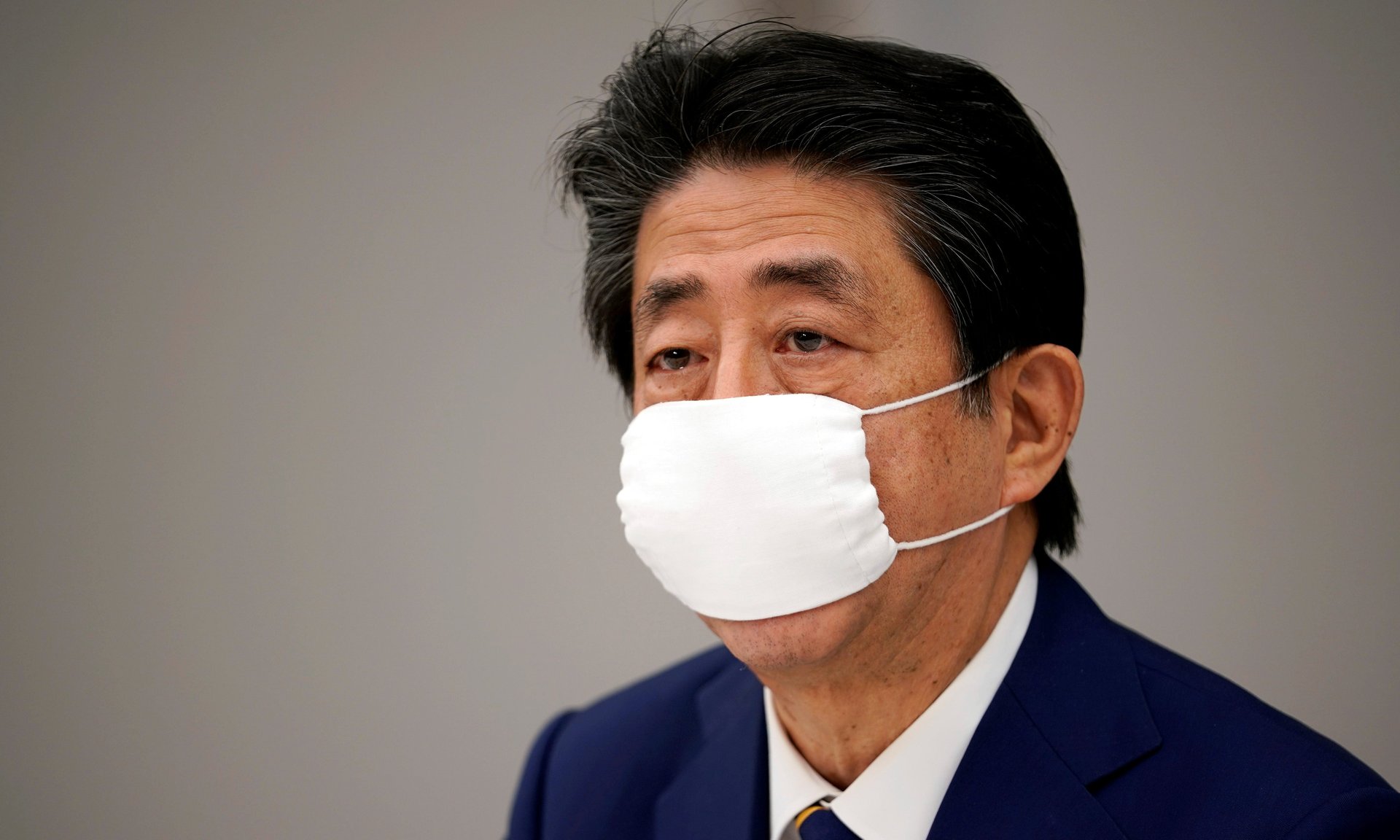Japan finally decided to hold a virtual cabinet meeting as a coronavirus precaution
China’s leader Xi Jinping held a video conference attended by some 170,000 Communist Party officials in February. The UK parliament is meeting via Zoom. New Jersey’s state assembly passed legislation over the phone. Japanese politics, however, has been largely business as usual.


China’s leader Xi Jinping held a video conference attended by some 170,000 Communist Party officials in February. The UK parliament is meeting via Zoom. New Jersey’s state assembly passed legislation over the phone. Japanese politics, however, has been largely business as usual.
Until today, when prime minister Shinzo Abe held the first cabinet meeting via video conference. According to Japanese media (link in Japanese), Abe and chief cabinet secretary Yoshihide Suga chaired the meeting from the same room (in a socially distanced way), while other members dialled in over Skype. The meetings are usually held every Tuesday and Friday at the prime minister’s residence.
The cabinet hasn’t met since April 10, after a state of emergency was announced for Tokyo, with administrative workers instead collecting signatures for policy documents.
All the ministers wore masks during the meeting, though before the start of the video conference, foreign minister Toshimitsu Motegi and economic revitalization minister Yasutoshi Nishimura sought guidance on whether they should keep their masks on. Suga advised them to do so.
The Japanese cabinet’s slow adoption of video conferencing reflects the continued aversion to remote working in Japan due to entrenched corporate habits that emphasize face-time and stamping physical documents with seals, although officials have tried to encourage companies to change the way they work. One Tokyo think tank found that 13% of workers in Japan have been working remotely in March, and about half of them said it was their first time doing so. In comparison, a Gallup poll released last month found that 62% of working Americans have worked from home during the pandemic.
In fact, Japan’s government has spent the last few years promoting remote working, or “telework” as it’s widely known in Japan, as part of a broader spate of labor reforms to boost worker productivity and improve the country’s cut-throat work culture.
The Japanese prime minister has, however, held other government meetings virtually during the pandemic, including one on April 27 with the economic and fiscal policy council.
The Diet, Japan’s parliament, has also been sitting physically, though with a slightly reduced number of lawmakers in attendance. Diet members have also agreed to reduce the number of daily committee meetings, according to the Japan Times. Japan has not imposed strict lockdown rules, but it has advised people in major urban areas to reduce social contact by 80% in a national state of emergency that now looks likely to be extended to the end of this month.
Suga’s verdict (link in Japanese) of the six-minute trial video conference was that “it was good to see everyone after such a long time,” and that there were “no serious issues.”